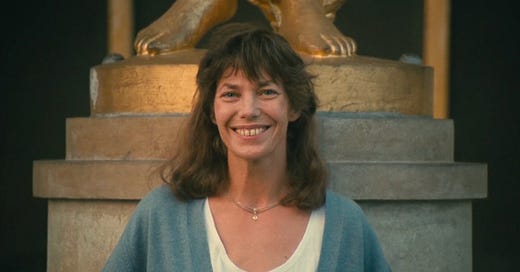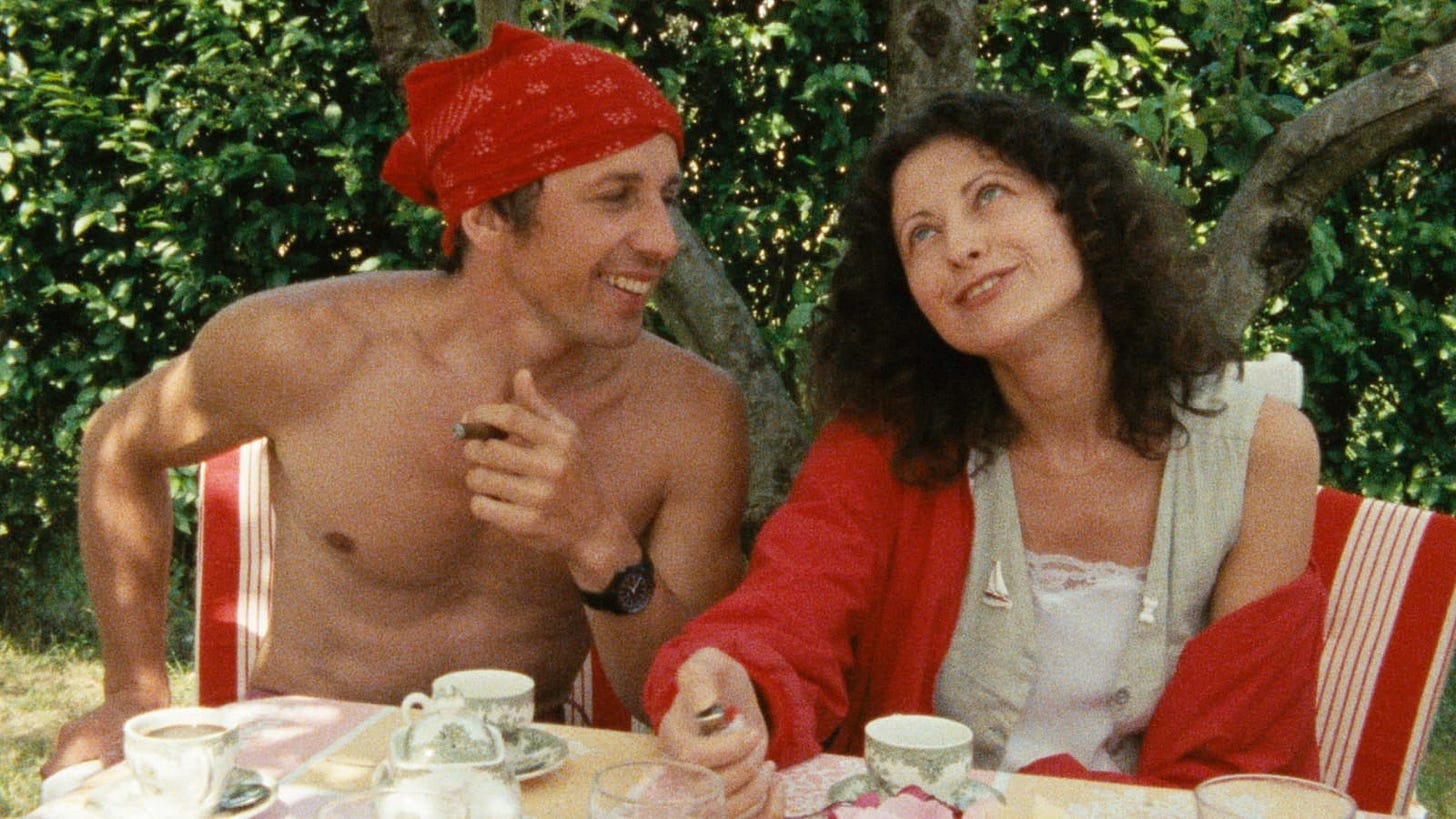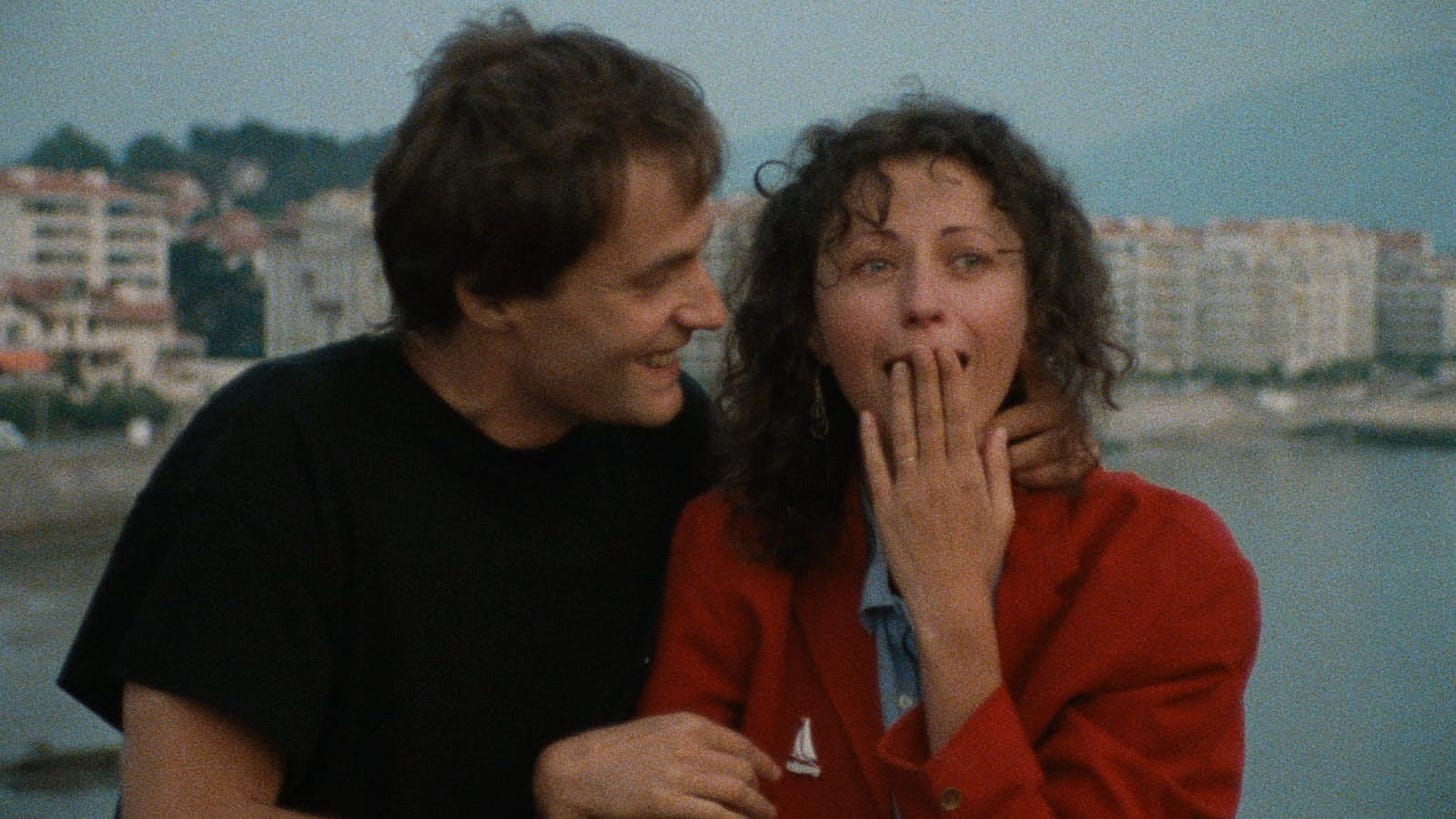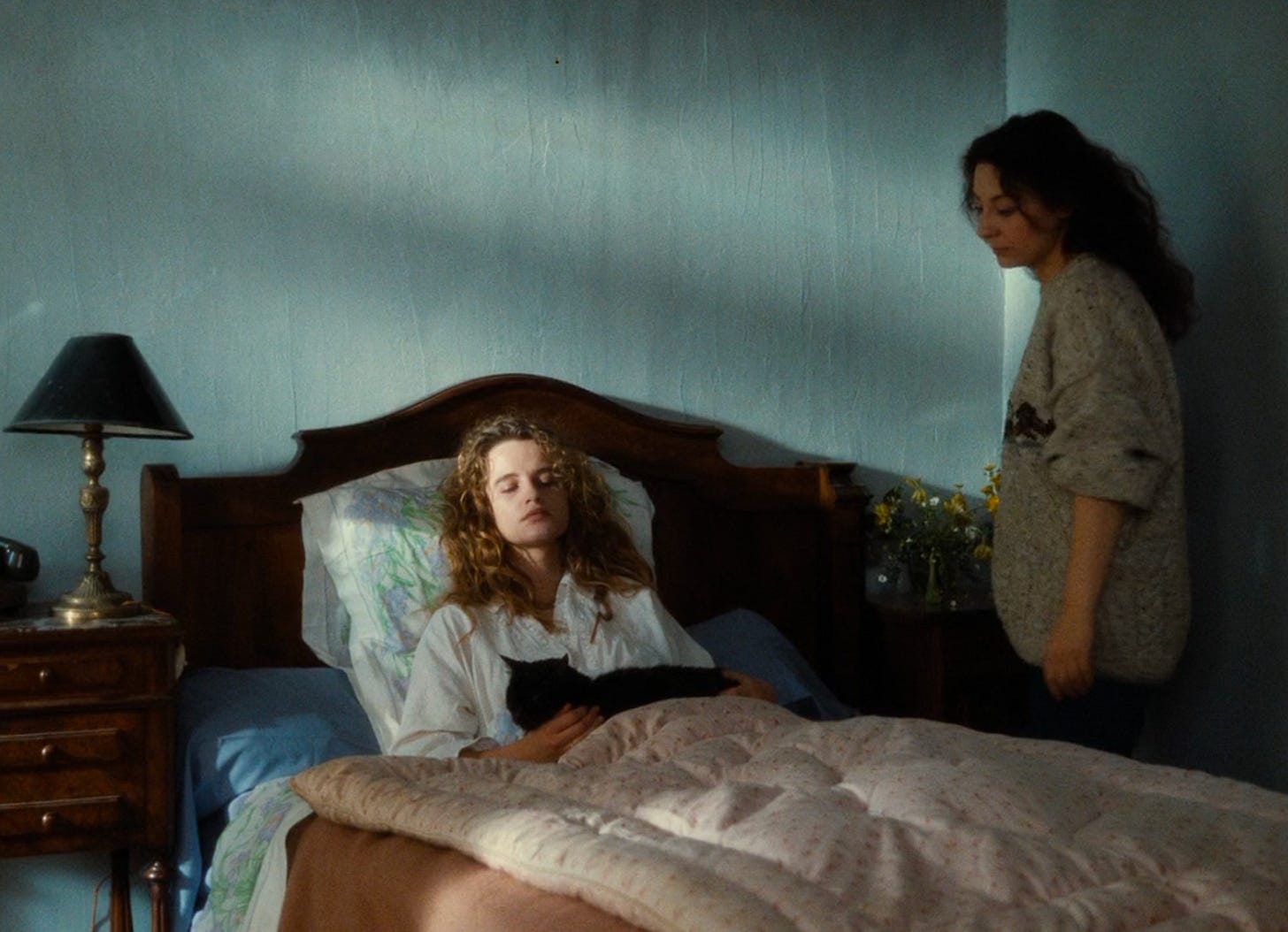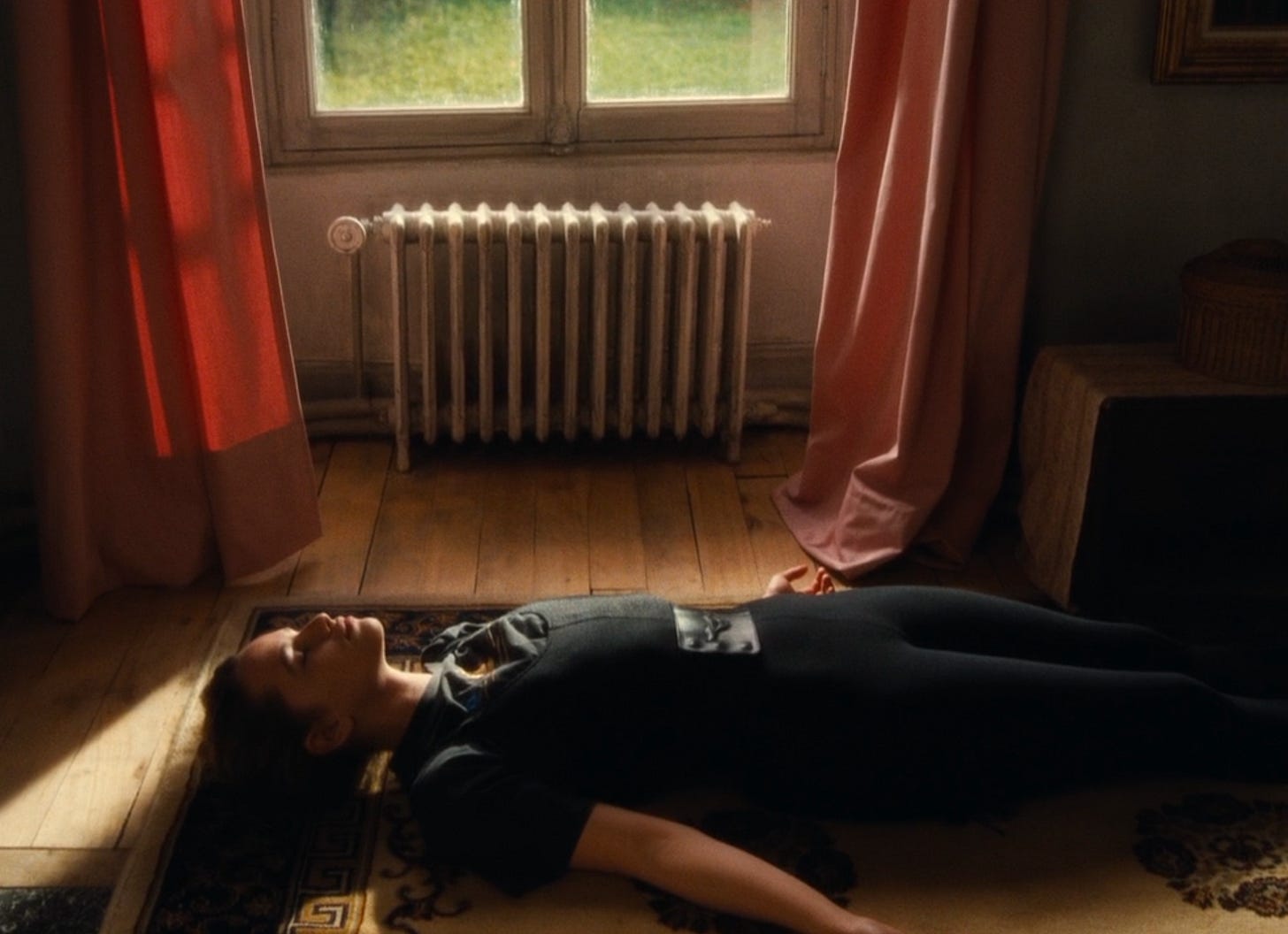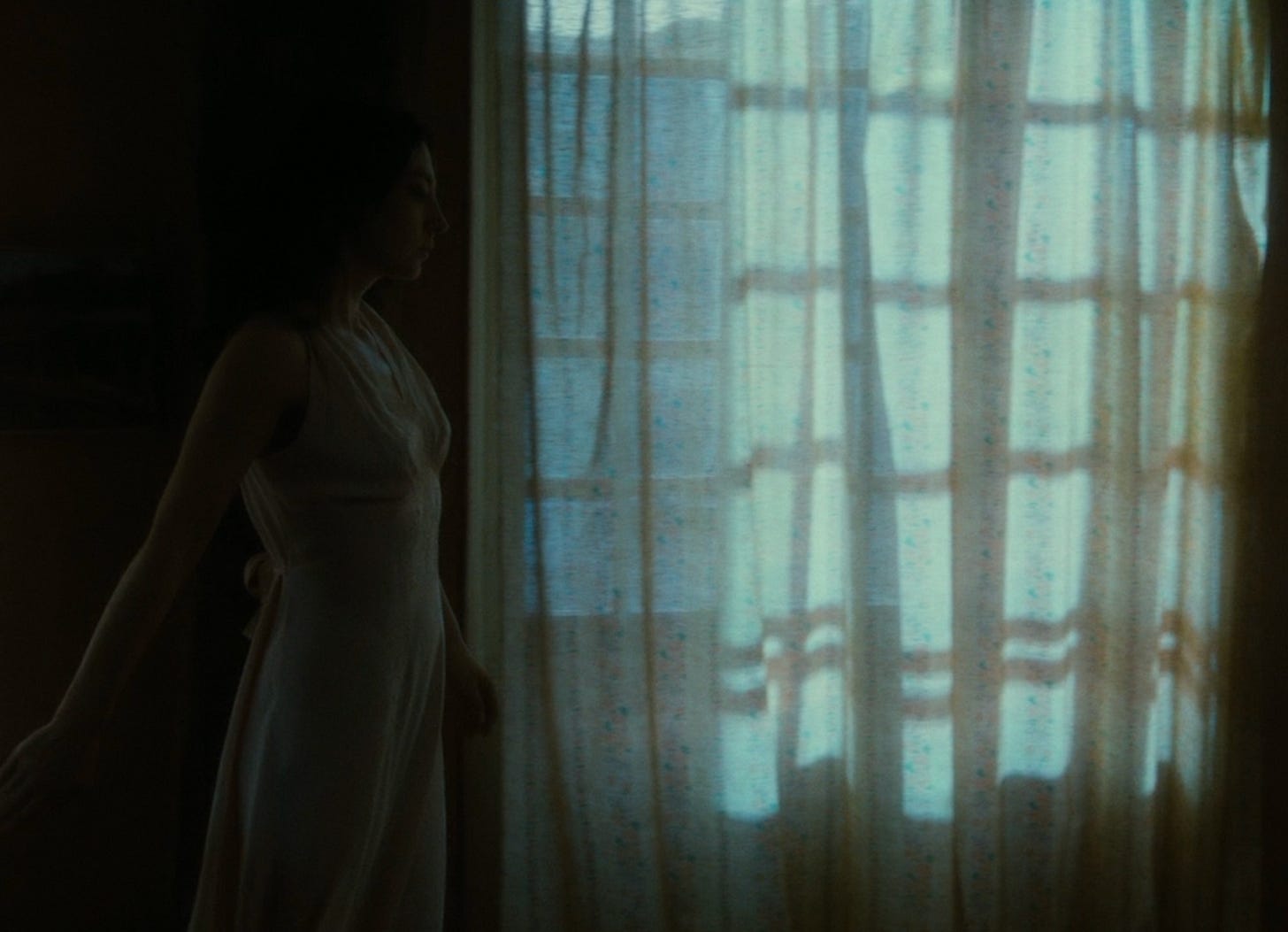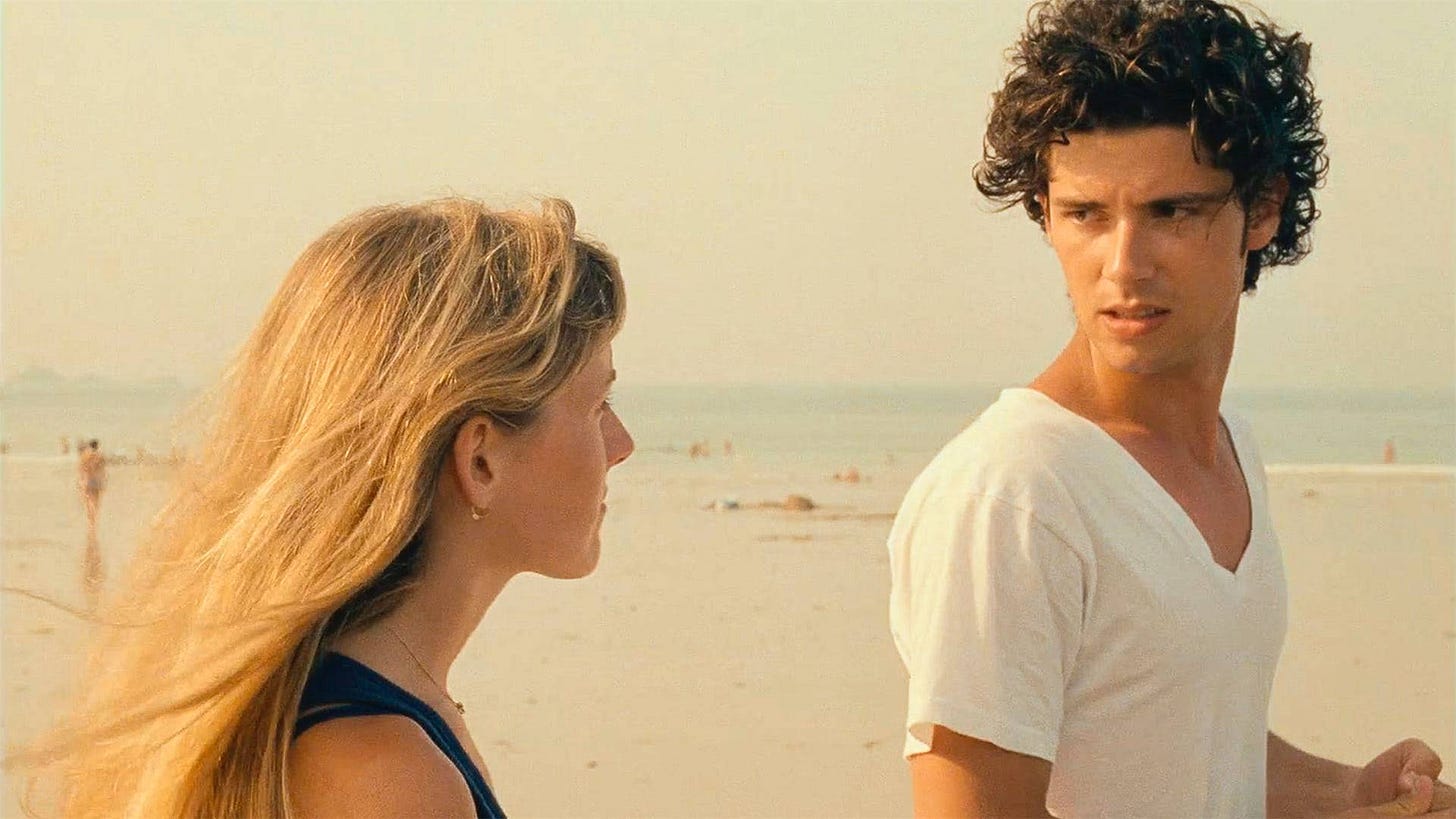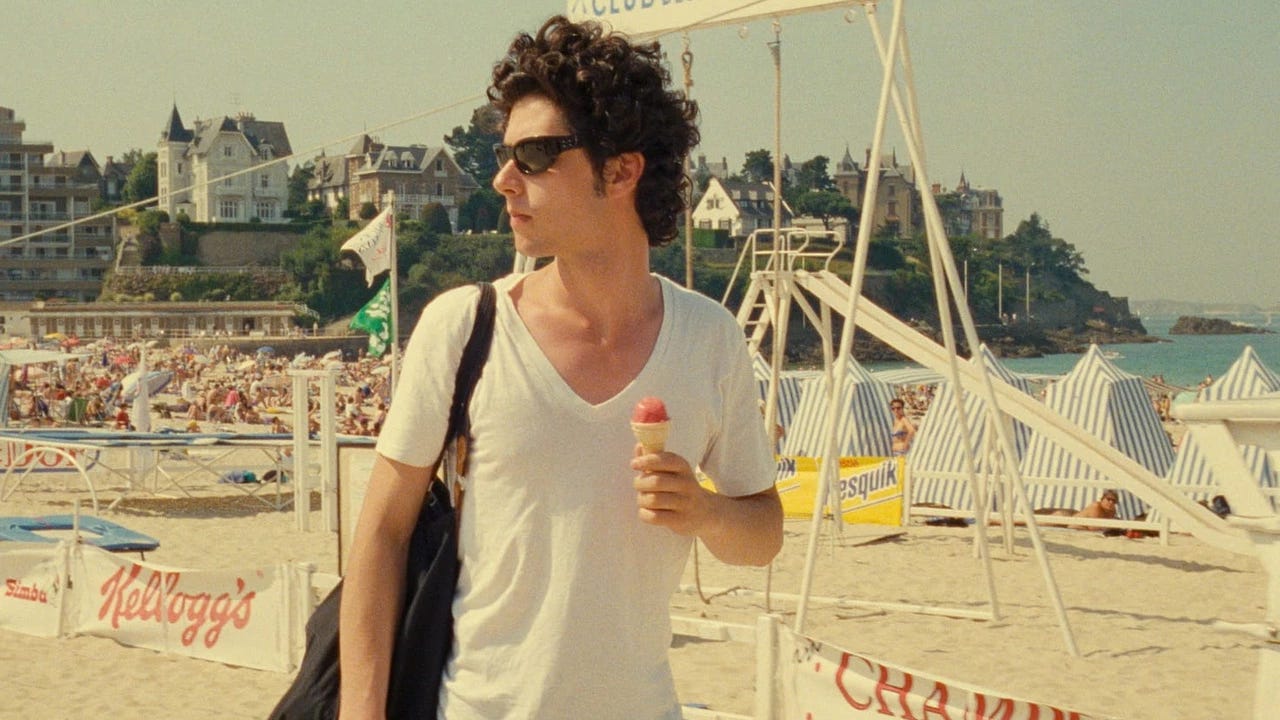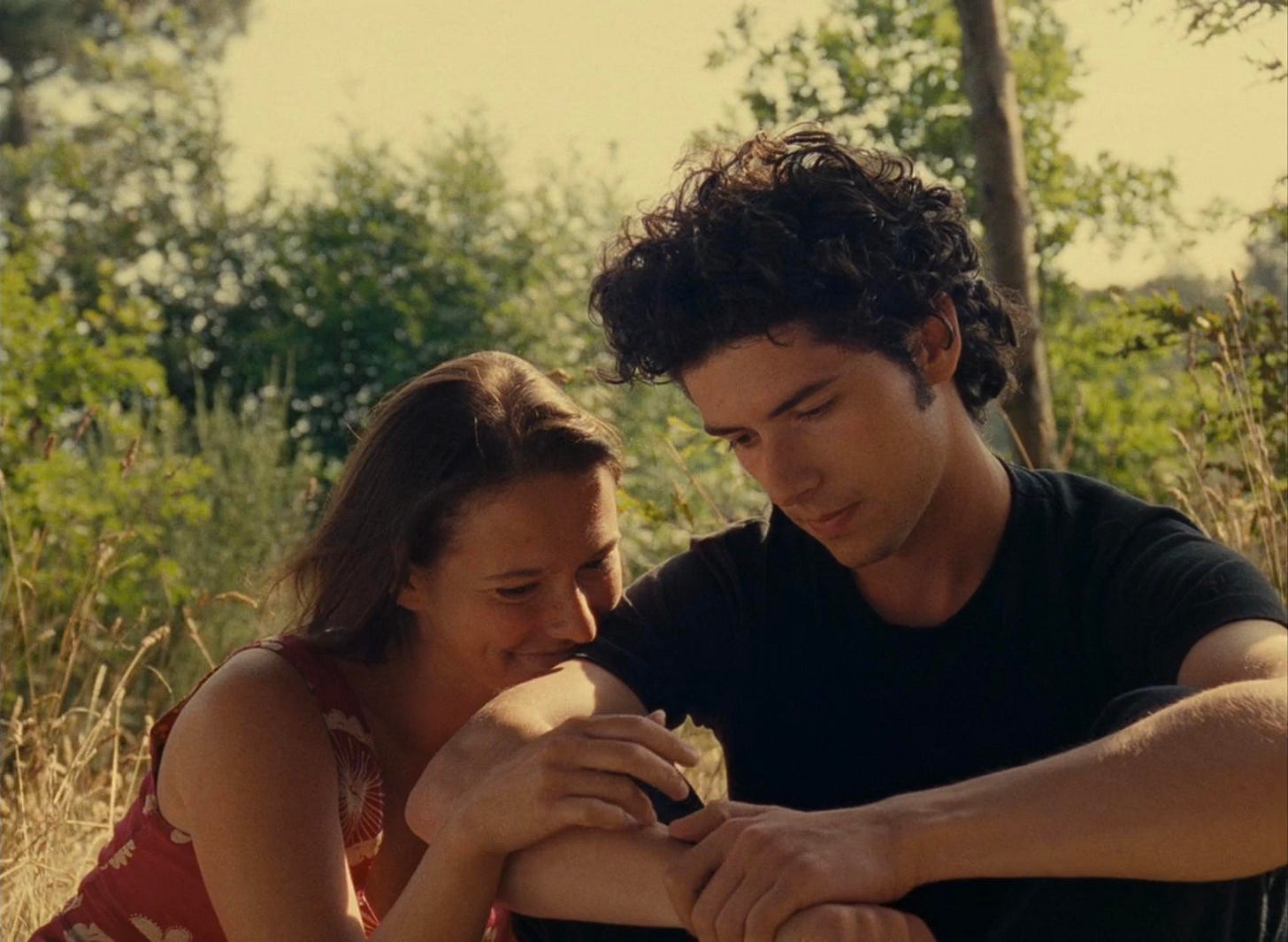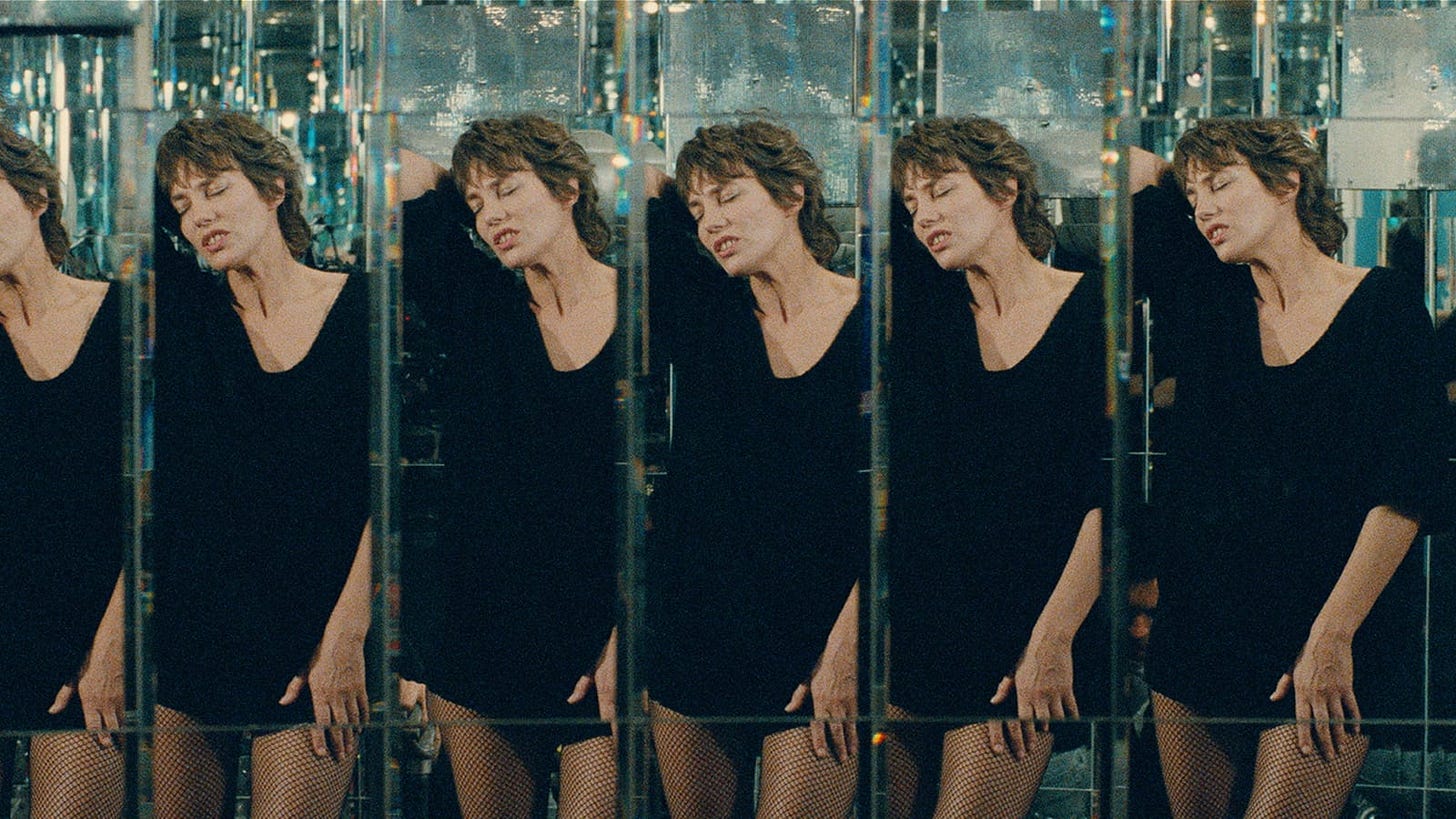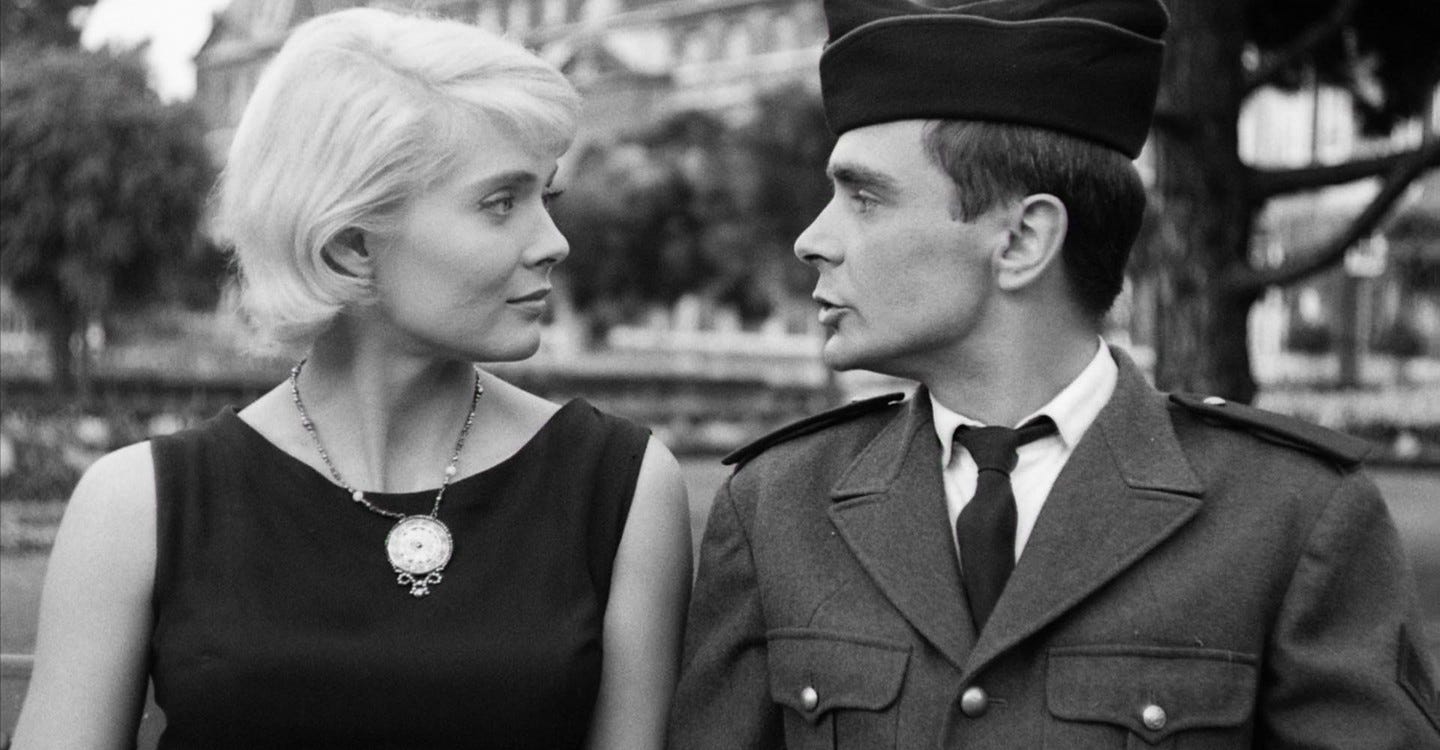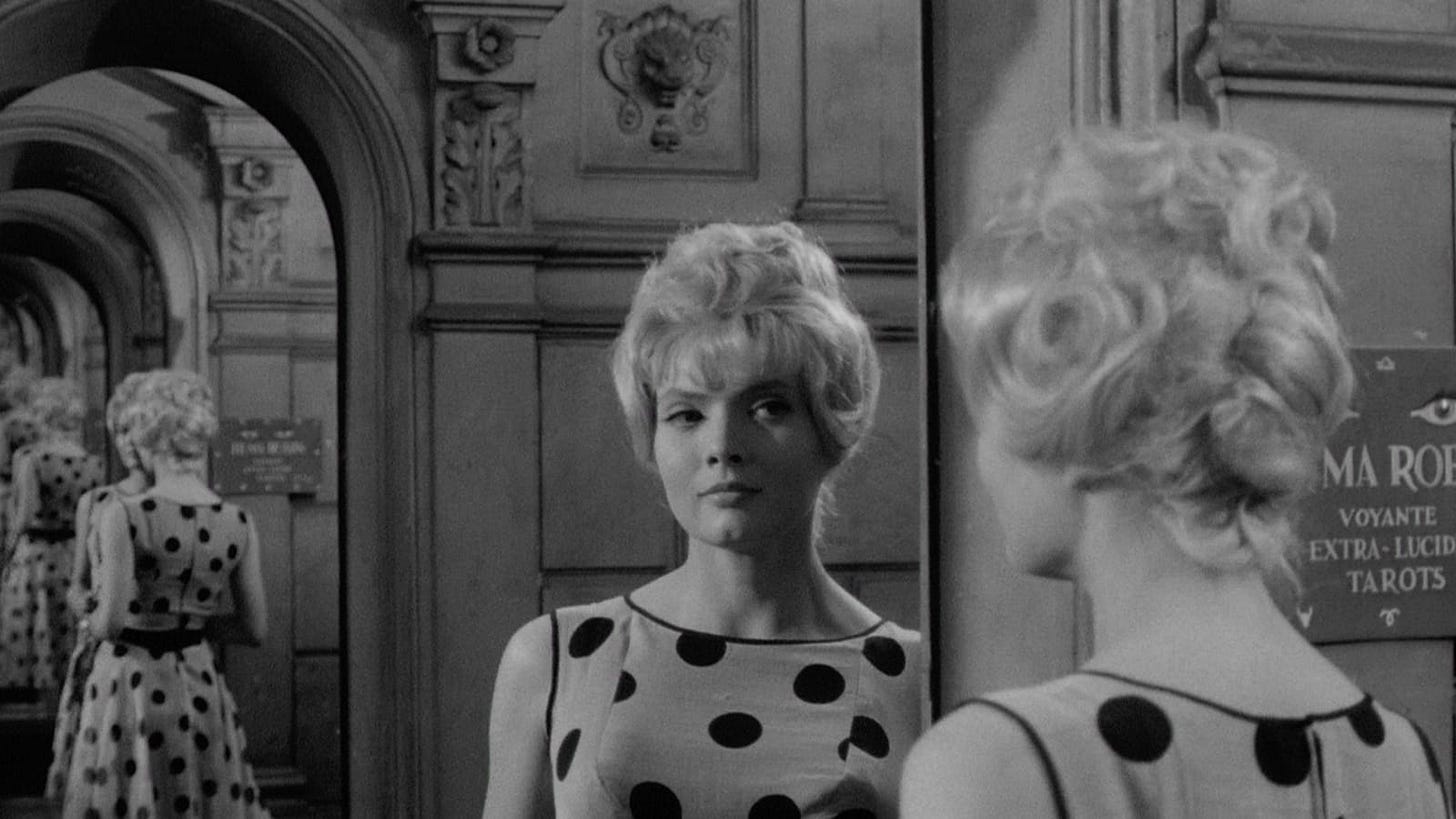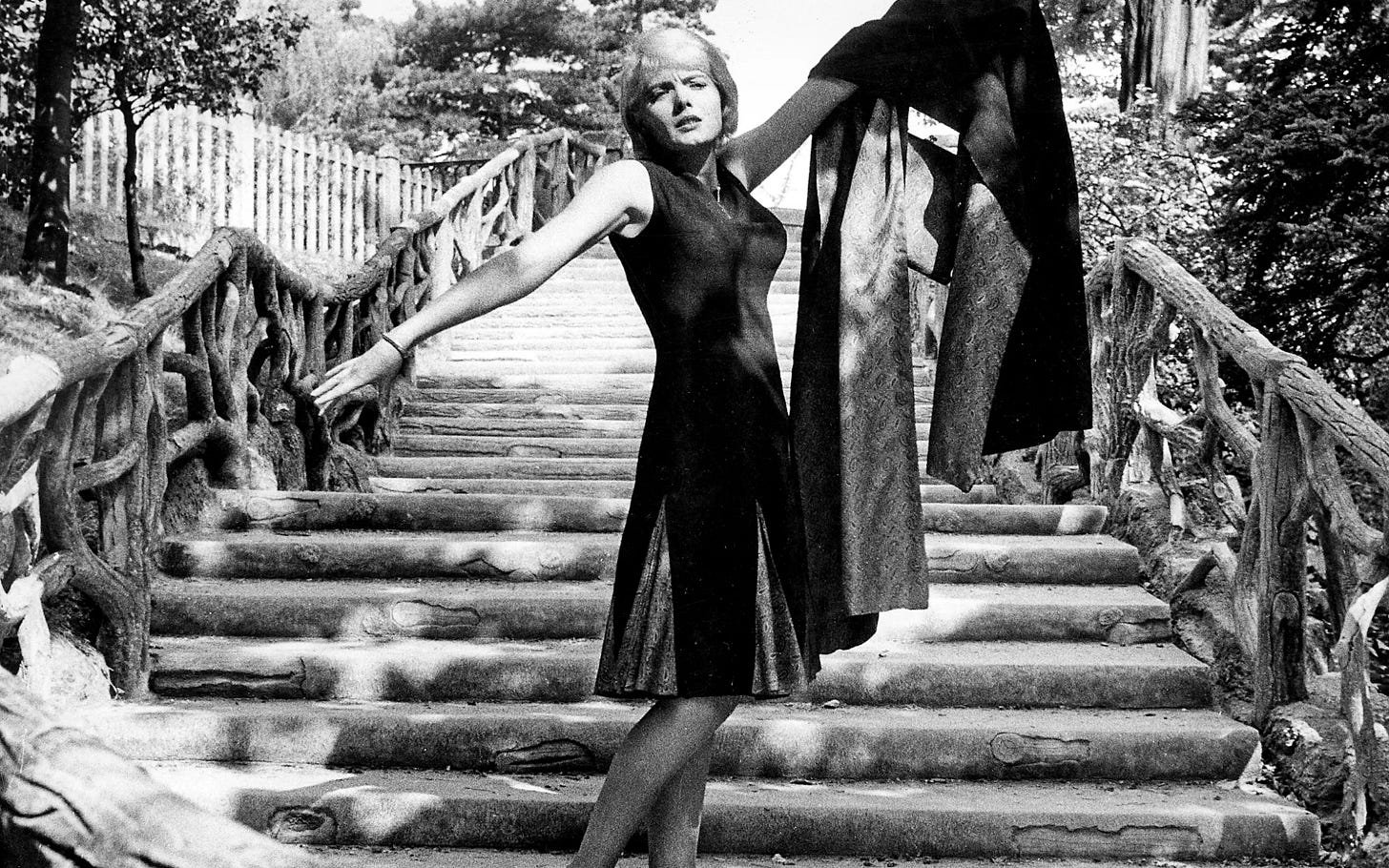I’ve been indulging in French cinema quite a lot these past few weeks, and I felt like talking about the movies I watch on here needs to be more of a regular occurrence.
I’m a true believer in cinema as a form of therapy and self discovery when taken in with a sense of intention, openness and curiosity. I love the feeling that I get when I’m moved by a film, or I see myself in a character so much that I get to go on my own little journey alongside him or her. They definitely don’t make movies today like the French did in decades past, from Godard’s New Wave classics to the subtleties of the French films of the 90’s. There were the nuances, the layers, the outfits, the art direction, the feeling of forgetting for a moment that you are even watching a movie because you feel so taken into the atmosphere and the discussion, it’s as if you are there in the flesh.
I never thought I was a true cinephile, but I think I’ve been slowly growing into one over these past few years, and I’m embracing every aspect of it. Enjoying every last drop of good, thought provoking cinema that I can feast my eyes on and absorb into my brain, with the intention of seeing the world through another colored lens.
As soon as spring started, I threw myself into some French films that were on my list but that I didn’t get around to watching just yet. And now that I’ve gotten them under my belt, I feel like a whole new world has opened for me, and once again my creative juices are starting to rev up just as the city is starting to warm up. I am allowing myself as much time as I can to indulge in cinema and allow it to influence my own creative journey. And hopefully these films will be ones you will take the time to watch to, if you haven’t already done so.
The Green Ray
Directed by Éric Rohmer
I have to start with this film by Éric Rohmer that touched me in a way that no film has ever touched me. This is actually just the second Rohmer film I’ve watched, after A Summer’s Tale which I speak about farther down in this post. And I am currently working my way through the rest of his work. Rohmer’s work is exactly what I’ve been looking for in cinema. His films have all the ingredients that I felt have been lacking in today’s visual storytelling. I remember in one of my earlier Substack posts, I talked about wanting to consume things with more intent, more sensitivity, a slower pace; to consume something and allow myself to keep the ideas that it gave me with me for days, for weeks and for maybe even months. Consuming in a more meditative way. This is exactly how I feel when I watched a Rohmer film. Rohmer doesn’t rush you through his films, he allows you to step into the world itself without giving you too much of his intended meaning, and instead giving you all the space to figure out the meaning it has for you personally. It’s a sort of feeling that is lost in the world today because of social media where everyone is trying to show you everything in a very straightforward and direct way. And I felt like I was introduced to Rohmer at such a specific and important time of my life, which makes his work even more profound and important to me.
Rohmer a master of set design and color coordination so much that every scene is mapped out in this imperfectly perfect way that feels so natural as it is dreamlike. A fashion film without intending to be a fashion film. But what he is a complete master of on top of that, is his way of creating these raw, believable, and vulnerable characters and allowing you to gently step into their worlds, take a deep peak into their heads, and accompany them on their roads towards self discovery. That certainly is what The Green Ray is about.
And one cannot dismiss how important discussion is for Rohmer in dissecting human connection. His films are full of long rambles in real time. About any random old topic. They aren’t rushed through. In fact, they are overly flourished and go off on tangents and with much back and forth between all the people at the table. And in the midst of all the interaction, you slowly get to to unfold the characters more and more. It’s just like getting to know someone in real life, through our very own interactions, conversations, innuendoes, disagreements, gestures, body language, tones. All of which take time and dedication to filter through and understand. This is how I got to know The Green Ray’s main character Delphine, and how I was able to see a lot of myself in her. In her awkwardness and her insecurities and in her moments of feeling alone or unable to find her place in society, all through her moments of breaking through on the other side. And all done on her own timeline. We get to know her without having her give all of herself away too much to us.
I come to appreciate how much more patience I have now when it comes to watching films that are meant to be taken in at a slower pace, like a Rohmer. And once you get to the end of this film, you will understand how important patience is in the road to self discovery. The patient wait that is necessary to catch a rare glimpse of your very own green ray.
Oh, I just absolutely adored this film so much in every way. And the fact that much of the film was completely improvised and based on the actresses own personal experiences, makes the viewing experience even more incredible.
Céline
Directed by Jean-Claude Brisseau
This was the film that actually kicked off my French film obsession this spring. It was one that Gabi had saved and we watched it together for the first time, and I was like wow. This truly is something! Mysteriously beautiful. Subtle in its expression of emotion, forcing you to look deep beneath the surface out of curiosity. I think this is actually the closest one can get to literally poetry in the form of cinema. A film about death, grief, giving ourselves to someone we truly care about, the healing properties of nature, the strength of human bonds and the fact that it is not necessary to have all the questions answered in life. Gosh it’s about so many things, and it all goes beyond just the physical but into the metaphysical and spiritual realm, as well.
The film deals with a young and beautiful grieving character, after the death of her father and the abandonment of her fiancé. She forms a bond with her young, female caretaker. The importance of female friendship and the transcendent quality of this kind of two-way relationship really is at the forefront of this film.
Not only was the development of the relationship and how it blossomed on screen so beautiful and unique, but every frame was pure art. I kept having to stop the film just to screen capture a moment because I just didn’t want to forget it. From the house that the two characters resided in, the way the light spilt in through the window, the juxtaposition of objects and colors so effortlessly fitting into one frame. It was all so awe inspiring. I felt so much peace and calm while watching this film, that even the saddest moments felt therapeutic.
I’ve never seen a film like Celine. It’s a film that feels like warm embrace of a body, making sure to remind you that everything is going to be okay. The way that Brisseau takes us the viewer to this place of understanding, is one of the most magical forms of storytelling on screen in my opinion.
One of my greatest takeaways from this film, is that for those who are watching who are going through a rough patch themselves, who are overcoming a loss, who are maybe grieving a lost sense of self, will find this film very soothing, hope instilling and life affirming. The film comes to a conclusion that life is like water; it is always moving … moving forward with new encounters, bonds and awakenings that are the keys to making healing always possible.
A Summer’s Tale
Directed by Éric Rohmer
This was my first Rohmer film and I’m glad this was the one I started with, because it totally reeled me into his work and the incredible way he builds worlds. This one was shot in the 90’s, which is considered much later in Rohmer’s career, and I’m really excited to go watch some of his earlier works now to see what sort of correlations I can make between them. I wanted to kick off the change of season’s with something that embodied those endless days of summers, where time seems to span centuries and also stay still for a moment. First of all, the visuals of this film are stunning. Blue skies against a sparkling French coast, the stripes on the beach, the bold pops of color from a soda bottle to the red on a swimsuit, the youthfulness of undone hair and freckly skin. Just a normal and typical backdrop for Rohmer to put his characters in.
I love so much how Rohmer just simply does not create meaningful characters through exaggeration. He creates characters who are meaningful because of how ordinary and real they are. The everyday banter two humans have on the daily … these are the moments that are extraordinary. Why? Because they are authentic, unassuming and not trying to be anything more than what they are. Rohmer gives the most meaning to the everyday. This is very unlike what is done in Hollywood now, where every movie is explicitly keeping the viewer on the edge of their seats for the next dramatic turn of events, as a sort of escape from the real life of the viewer. A Summer’s Story keeps a simple and calm pace, edged up with mixed emotions and a lost sense of identity when it comes to its main character, Gaspard, the one male amongst the women. And well, that’s all very relatable stuff.
Today, and particular in the US, I feel like we forget how extraordinary our very own lives are because we constantly compare them to the lives of others on the big screen, in the tv shows we binge stream and the curated Instagram feeds on our phones. Rohmer reminds us that our lives, no matter how mundane or simple or confusing or imperfect they are, they are still worthy of being lived. And just the act of living and connecting with our fellow humans, even the parts that get super messy, is just purely the most beautiful thing about life. Rohmer’s A Summer’s Tale is all about the indecisiveness that marks life itself, in particularly in terms of romantic pursuits and relationships.
If you want to kick off summer, and get inside the head of a very confused 20 something year old and his noncommittal romantic adventures and musical musings, then this is the movie for you. And I love that even though the main character is a male, Rohmer made sure to find a way to bring to the forefront the female characters as the more wise and emotionally mature characters, embodying the complexities of human nature than Gaspard could never know and understand in the place he is in life at that moment.
Maybe there is a bit of Rohmer in Gaspard, and with the undertones you can see how he is self critical. And already, just two Rohmer films in and I see a very strong theme of female empowerment that doesn't rely on a man to flourish and be nourished. And while the film ends on a good, even toned note for all its main characters, it’s easy to see where Rohmer puts his admiration towards.
I have the urger to rewatch this one again and again, each and every summer to come :)
Jane B. by Agnès V.
Directed by Agnès Varda
My very first introduction to a Varda film and of course I had to go with the one all about Jane Birkin! Might as well bust out two icons at once! I’m truly shocked that I haven’t dived into Varda’s work earlier, because it is so damn incredible and eye opening. I deeply appreciate Varda’s experimental and non-traditional approach to filmmaking, and it inspires me to see the world beyond the boxes that I am more comfortable in. She was a woman who pushed boundaries in an industry of mostly men, and we need more of that.
What is interesting about this film is how it’s a pure collaboration and intersection between artist and subject, motivated by Jane’s 40th birthday. I hope to be as cool as Jane when I turn 40! You can look at it as a dual portrait, of both artist and subject, and how the boundaries collapse and how far that collapse can be taken. Varda takes cinematic form and turns it on its head, giving way to a vision of Jane as muse, actress, singer, mother, artist, and everything else in-between, through personal interviews with Jane bared down as her everyday self and through Jane’s embodiment of different characters to showcase different aspects of her personal life. It went beyond 360 degrees, and that is a major feat. Varda held back in no way with her vision of Jane and her own role as filmmaker and crafter. It just reinforces the fact that collaboration is where one can find the most truest heart of all, and that through collaboration can we bring out the best, most exciting and most uninhibited sides of ourselves for the world to see.
Aside from cinematic magic and escapism, watch this for the fashion, as well. Like any fashion girl knows, Jane Birkin is an icon for the majority of us. Jane is all over our Instagram feeds and probably will be for all the fashion girls to come in the future. But it wasn’t until seeing Jane in every kind of imagined shape and form here that I truly understood the essence of Jane Birkin, which goes beyond just her beauty and her personal style. Her effortlessness, candidness, rawness, genuineness, openness, and candidness is peak level captivating. She breathes and exudes authenticity and a relatable confidence in her own skin. Watching Jane makes me want to look in the mirror and embrace who I am, imperfections and all, and be like “I am who I am, let me show the world who that is” and be unapologetic about it, but at the same time super mindful and graceful and without a grain superiority. And I thought to myself, I wonder how any fashion girls who swear by the Jane Birkin style manual have actually watched a Jane Birkin movie, let alone listen to Jane speak about personal intricacies of her life? I think not as many as you’d think. So that’s why I say, the essence of Jane goes beyond just her beauty and her style. It’s in her way of seeing the world, living and best of all, collaborating, that makes her an icon.
Thank you Varda for showing us that there is no right or wrong way to tell a story. Thank you Varda for giving us permission to blur the lines. Thank you Varda for giving us a reminder to look in the mirror and see ourselves looking back from a completely different perspective.
Cleo from 5-7
Directed by Agnès Varda
I was so blown away by Varda’s work with Jane B. by Agnès V. that I instantly went to another Varda movie straight afterwards. This one was already on my watchlist and it is known to be one of her well known ones, so I thought it would be a good one to move onto next.
First, I’ll start with the beautiful fashion and how chic the main character of Cleo is. She’s polished and pristine, a famous singer who from the outside seems to have it all made for her. The film takes place over the course of a singular afternoon, and early on you already know that Cleo has something shattering underneath the surface. She is awaiting a biopsy test result from her doctor that fills her with fear. The wait takes all afternoon, and within those few hours you follow her path of self discovery as she makes her way towards her dreaded fate that she will face sooner than later.
You see clearly her insecurities as scenes are filled with mirrors and she keeps catching herself, constantly seeking her validation and sense of worth through her beauty as a sort of survival mechanism. And you find that the object of the mirror plays a huge role in the film and the character’s transformation throughout it. And I was sort of expecting this, as there was a lot of interesting mirror play in Jane B. by Agnès V.
There is an evolution of sorts when it comes to the mirror that represents the stages of Cleo during her process of self discovery. I don’t like to give too much away when I write about films on here, but like to call out things that catch my attention. The amount of mirrors and what they represent for Cleo in the beginning of the film shifts dramatically from the beginning to the end, and for the better. The evolution is an astounding thing to watch.
As a woman who lives in a mirror obsessed society and who literally has to make a living looking in a mirror and taking selfies and posting photos of myself online for others to see, I can relate so much to what Varda is trying to say through her visual language here. To Varda, to be free from the shattering hold that a mirror has on a woman is just the beginning of the road to autonomy, independence, happiness and a sense of true self.
Hope you enjoyed this post as much as I enjoyed putting it together, and reflecting on these films that have moved me and kick started my spring mentality. Let me know if you guys have watch any of these, or if you have any recommendations for me to watch in the future :)
xx

